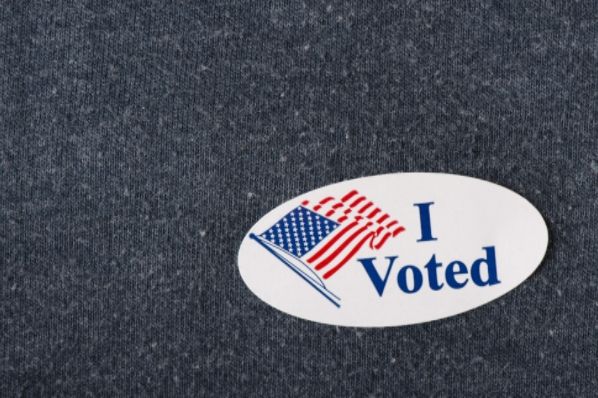Millennials voted in surprising numbers during the U.K. general election turning their frustration with tax and spend policies into impact at the polls. A pied piper captured the attention of a generation that feels betrayed by promises made to older citizens, but for which they’ll have to pay. America should pay attention. That could — and is — happening here too.
One exit poll shows that 56 percent of 18-34 year olds turned out to vote, up 12 points from turnout in 2015. According to Sky Data, an overwhelming majority (63 percent) of millennials voted for Labour and 27 percent for Conservatives. The prevailing view of millennials being politically apathetic clouded the clear signs — i.e. the spike in registered young voters — that youth turnout would be high.
We can draw a parallel to the 2016 presidential election cycle. Vermont Senator Bernie Sanders dominated among Millennials winning 2 million youth votes — more than candidates Hillary Clinton and Donald Trump combined. During the Democratic primaries, Sanders won 70 percent of the under-30 vote. Clinton couldn’t take that fresh, youth energy to the polls to win the general election.
Millennials have surpassed Baby Boomers are the largest living generation and the largest voting bloc — if they vote. While they self-identify as Independents, they are embracing socialist philosophy and anti-establishment dogma that will continue to cause heartburn for traditional parties. There are three reasons to think that what happened in Great Britain is happening here in the U.S.
First, millennials are enchanted with socialism in a way that older generations don’t understand. A 2015 Reason-Rupe survey found that over half (58 percent) of Americans under 30 have a more favorable view of socialism than capitalism. Nearly 70 percent of 18 – 29 year olds were willing to vote for a socialist according to Gallup. Socialism is in vogue, but it’s a gentler version that offers a big public safety net that provides basic needs for people (to include higher education) — just without political repression and human rights abuses. It’s Sweden or Denmark rather than the Soviet Union.
Pied pipers Bernie Sanders and Jeremy Corbyn are taking that open invitation to lure away young people with promises of inclusiveness and equal outcomes. Never mind that those outcomes are mediocre and limit the potential of individuals.
Second, when we look at Corbyn and Sanders we see that youthfulness, charisma, and diversity are no longer prerequisites for revolutionary leadership among millennials. The Barack Obamas have been traded for white, well-off septuagenarians as gender, race, and charisma have taken a back-seat to style. Plain-talk wins over platitudes as two out of three global millennials like straight talk in their leaders according to Deloitte. While young people in developed countries are generally opposed to their political leaders taking controversial or divisive positions (64 percent), in the UK nearly half of millennials (48 percent) welcome it in politicians. This makes us wonder whether the Obama of 2008 would still motivate millennials?
Third and most critically, general wealth redistribution and a lack of economic mobility have created the dissatisfaction with what millennials perceive as a system robbing them of a better future than their predecessors. There is growing pessimism among millennials in developed countries about their futures. Deloitte also found that just a third (36 percent) of those in mature markets predict they will be financially better off than their parents and 31 percent think they’ll be happier.
British young people mobilized last week in response to student debt, a housing crisis, a lack of secure jobs, falling wages, and social security. Older U.K. millennials have an average wealth of £27,000 each compared to £53,000 for those born in the 1970s had by the same age. British Baby Boomers at age 30 were 50 percent more likely to own their home than a millennial at the same age.
Add to that youth resentment over Brexit. Seventy-five percent of 18-24 year olds voted for the UK to remain in the EU compared to 56 percent of 25-49 year olds, 44 percent of 50-64 year olds, and just 39 percent over those over 65. UK youth are angry about the fiscal plans that will take £1.7 billion from millennials but given £1.2 billion to Baby Boomers in the next four years in pensions. So angry they took to the polls.
Meanwhile, U.S. millennials shrug their shoulders about the consequences of $20 trillion national debt driven by unfunded liabilities at the federal level. Only six percent expect to receive Social Security benefits, but 100 percent of workers watch one-eighth of their salaries disappear in the federal coffers.
Sanders and Corbyn recognized the angst of this generation and offered freebies including college tuition to appease this generation. Unfortunately like promising government-funded retirement security to seniors this will only grow costly and unsustainable without tackling the issue of affordability.
It would be naïve for Americans to shake our heads and think that could never happen here. Young Americans are restless with their condition and have an appetite for change. If we do nothing about our nation’s long-term fiscal problems, many more millennials will hearken to the tune of these pied pipers and disappear into the dark caves of socialism.
We also need to get serious about correcting the record. Capitalism holds the record as the greatest anti-poverty program in history. When socialism bleeds into government overreach, it drains countries of prosperity and gumption. If we don’t, and if Millennials overcome political apathy, the political landscape will change over the next decades into something we might not recognize.


